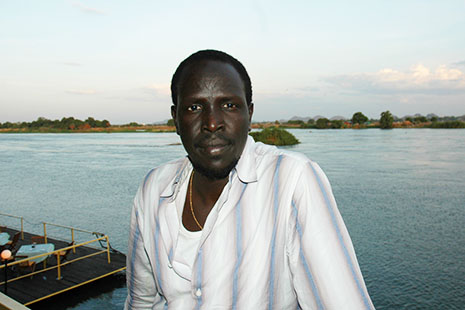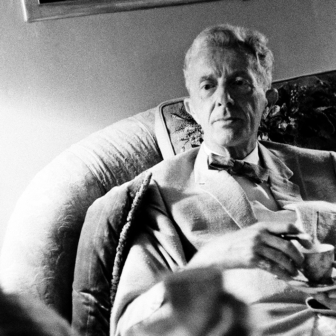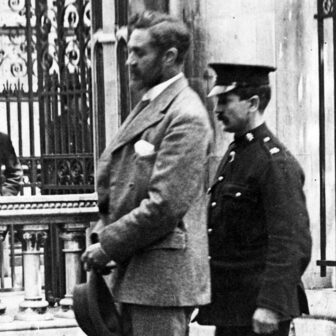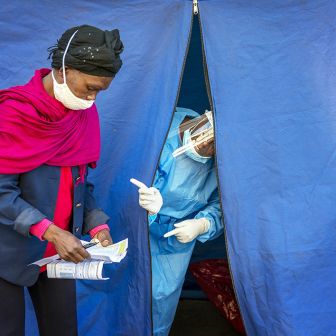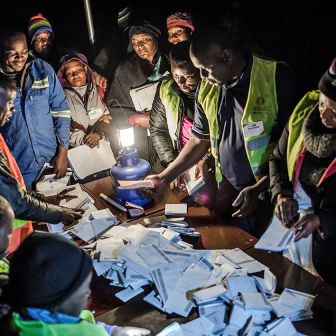IT’S EVENING on the Nile and the sky and the water have faded to the colour of an old cowboy’s jeans. A lone fisherman drifts by on his pirogue. I am killing time, waiting to interview the owner of a riverside lodge, when a stranger greets me. He is tall, though not by the standards of the Dinka people of Sudan, and has the traditional v-shaped scarifications on his forehead.
“How’s it going?” he asks.
His accent confuses me.
“Sudanese-Australian,” he explains.
I’ve been in Southern Sudan a few days now, a month ahead of historic national elections. It will be the first multi-party poll since President Omar al-Bashir – currently a fugitive from the International Criminal Court – took power in 1989. It is also the final step before a referendum next year on independence for Southern Sudan, which is likely to see the country split in two.
I have come to find out about people’s expectations of the election. But I find myself collecting personal histories too. Because in a place like Southern Sudan, so troubled by war for nearby half a century since independence, everybody has a story.
The stranger’s name is John Mac Acuek. He tells me that his family is in Sydney, where they have lived since 1998 after leaving Kakuma, a refugee camp in Kenya. Back then Acuek’s wife spoke no English. Today, his twelve-year-old son speaks no Dinka. “He speaks like an Australian,” Acuek exclaims, “A black-white man!”
Sydney is a good place for his family, he says. But he cannot resist the pull of his home country. In 2005, when the twenty-one-year North–South war ended – a war in which he fought as a child soldier – he flew back here to the battered southern capital, Juba, to celebrate. He returned two years later to work for an NGO. Now, at thirty-six, he is back for a third time as an entrepreneur, trying to sell a couple of used four-wheel-drive vehicles that he has imported from Japan. And, of course, he’s here to vote.
The election, which was to begin on 12 April, appeared devilishly complex, with simultaneous presidential, parliamentary and gubernatorial votes. Here in the south, parallel presidential and parliamentary polls for the autonomous government were also scheduled. But the result of the most important ballot – the national presidency – was not in doubt, Acuek, who is thirty-six, tells me.
“Bashir will win,” he says. “He will rig the election. But for us the outcome does not matter.”
It turns out that he is right on all counts.
SUDAN, Africa’s largest country, is an accident of colonial cartography. Arabs dominate the arid north; the lush south is home mainly to Nilotic ethnic groups that practise Christianity or hold traditional beliefs. Britain administered the two areas separately until 1946, when they were merged. It took just nine years for war to break out. In an ominous sign for a country only months away from independence, southern soldiers angry at the dominance of the north began an insurgency in 1955, which lasted until 1972.
A decade of peace yielded few benefits for the south, however, and in 1983 war broke out again. Barely a single southerner was unaffected, from the old to the very young. Along with thousands of other boys, Acuek was conscripted into the Sudan People’s Liberation Army, or SPLA, the southern rebel movement fighting against the government in Khartoum. The first bullet he fired, aged fourteen, left its date stamp in his memory: 3 April 1987.
The war caused more than 1.5 million deaths, and millions of Southern Sudanese – including Acuek, in 1994 – fled to neighbouring countries as refugees. Thousands eventually found their way across the Indian Ocean as part of the Australian government’s refugee resettlement program.
The conflict ended in January 2005 with the signing of the Comprehensive Peace Agreement, which granted the south autonomy. More importantly, the deal also promised a referendum in 2011 at which southerners could choose whether they wanted to remain in a united Sudan or break away as a separate country. The terms of the peace agreement also included a national multi-party election before the independence vote.
At the time, it seemed highly unlikely that Bashir would emerge as one of the most enthusiastic backers of the election. A former paratrooper in the national army, he had seized power in a coup, and had never subsequently pretended to be a friend of democracy. But the last days of the North–South war had overlapped with a deadly new conflict, the consequences of which would change the president’s mind about the benefits of holding a more open election.
Rebels in the western Darfur province, which, like the south, had long been marginalised politically and economically, launched attacks on army bases there early in 2003. Bashir’s response was to unleash the army and a murderous proxy militia known as the Janjaweed, or devils on horseback, on the millions of mostly non-Arab (but still Muslim) civilians whom the rebels lived among.
The United States described the policy as genocide and the United Nations Security Council asked the International Criminal Court to investigate allegations of war crimes committed in Darfur. Last year, the Hague-based court issued an arrest warrant for Bashir, the first ever indictment it has issued against a sitting head of state.
Suddenly, the election took on a new meaning. For Bashir and his ruling National Congress Party it was a valuable chance to try to show for the first time that they had the legitimate support of the people of Sudan. But they could also not risk a completely free election because losing power would heighten Bashir’s risk of arrest for war crimes. A win, but not so convincing a win as to make the poll appear a sham, would be ideal. To achieve this, Bashir knew he had a certain amount of freedom to manipulate the result: the Western countries watching the polls would be reluctant to issue any strong criticism for fear of jeopardising the southern referendum.
As Acuek had suggested, the result of the presidential vote was not overly important in the south – after all, people there firmly believe they will be living in a new, separate country, outside Bashir’s control, next year. But the election, particularly the ballot for the southern leaders, still held a significant appeal to many Southern Sudanese, most of whom had never been inside a voting booth before.
“It’s very exciting. People who have been on the run or in garrison towns here now have the right to choose their leadership for the first time,” said Professor Aggrey Abate, vice-chancellor of Juba University, when I met him in his office late one afternoon. “For the rest of Sudan it shows that the fight between north and south was not in vain. It has brought about some democracy.”
Printing firms across town had erected adverts offering to produce election paraphernalia and the number of candidates’ posters littering Juba suggested that business had been good. There were some giant billboards too, featuring the faces of two men. One was Salva Kiir, the leader of the Sudan People’s Liberation Movement, or SPLM (the SPLA’s political wing), with his trademark beard and cowboy hat, who was standing for re-election as president of Southern Sudan. The other was a man who until recently had been far less known: Yasir Arman, whom the SPLM had chosen to stand for the national presidency.
Arman’s nomination had angered Bashir and his allies, and added spice to the election. Bashir had earlier tried to persuade Kiir not to field an SPLM candidate in the national presidential ballot, in return for the National Congress Party staying out of the southern election race. But Kiir refused, and then sprang a surprise. Unlike most of the party hierarchy, Arman is an Arab northerner. With the SPLM enjoying overwhelming support in the south, the party endorsement meant that he could expect to win the majority of votes there. His northern roots would also help him win support from voters there who are opposed to Bashir.
“The South has moved very far politically,” said Stephen Tut, editor of the South Sudan Post magazine, explaining the choice of Arman when we met for lunch at an Eritrean-run restaurant in Juba. “Before the North has always deceived us. Now it’s the other way around.”
Many analysts believed that a strong showing from Arman, coupled with support for other northern presidential challengers such as Sadiq al-Mahdi of the Umma Party, the former prime minister who was deposed in the coup in 1989, could deny Bashir 50 per cent of the vote and force a run-off.
Interest in the poll – and antipathy towards Bashir – in Southern Sudan was not only confined to Juba. At dawn one morning I took a motorcycle to the main bus rank, where Acuek had told me that I could get a ride to Bor. It was his hometown, as well as the birthplace of the SPLM, and was where the first shots of the renewed war were fired back in 1983. After a few hours, our packed minibus started on its way, bouncing along the dirt track eastwards. Every now and then we passed a tiny village, but mostly there were just open grasslands and bush.
We reached Bor, which sits on the banks of the Nile, in the early afternoon. There was not much to see – a market, a new prison and a small university named after the late southern leader John Garang appeared to be the main attractions – but people seemed proud of the progress since Bor had ceased to be a garrison town five years ago. Outside the SPLM office, T-shirts were being distributed to campaign volunteers, causing a scrum. Election posters had been tacked to trees and fences.
Some of the posters were for Maker Thiong Maal, an MP for the SPLM in the unity government in Khartoum, whom I talked to outside the small prefab container that served as his house. He told me that he was seeking election – he was previously appointed directly by the SPLM – with the primary goal of ensuring that the referendum proceeded smoothly next year, again highlighting the importance of that vote to southerners, compared to the imminent election. Attempts by the northern government to obstruct the independence drive were expected, he said, but would not be tolerated. To make his point, he told me a story about Bashir’s visit to the southern town of Torit a few days earlier.
“To try to win votes he said that if southerners voted for independence he would give them the south. But people in the crowd shouted back: ‘The south is not yours to give. We shall take it.’”
To get an idea of just how polarised Sudan is, I continued up the Nile, flying to Malakal, a dusty town in the oil-rich area close to the border with the north. Though they are in the minority, there is a significant Arab population in the town. What’s more, the governor is from Bashir’s party – a condition of the peace agreement, which stipulated that the National Congress Party and the SPLM should each be allowed to appoint a governor in each other’s heartlands. This was part of the experiment in the lead-up to the referendum to see if unity was feasible. But in Malakal, where the billions of dollars in oil revenues that have flowed to Khartoum have left no positive mark on the town, it was clear that the experiment had failed. The army unit based there was meant to be an integrated force drawn from the northern and southern armies. But the two forces had twice clashed violently since 2005, and the units remained segregated in different parts of town. The atmosphere was noticeably more tense than in other southern towns, and several people warned me not to take photographs.
One morning, I went to the main market area to interview Samuel Aban, who was standing as an National Congress Party candidate for the local parliament. Aban said that the war crimes charges against Bashir were political. The president deserved credit for ending the North–South war, he said, and should be allowed to see the peace agreement through to its conclusion, the referendum next year.
Aban claimed that Bashir could in fact win the majority of votes in the south in the presidential poll – a fanciful assertion. But in the north he did have some strong support. Under Bashir’s rule, there has been significant development in Khartoum and surrounding areas, with oil revenues funding large infrastructure projects such as dams and roads as well as improvements in health and education. (At the same time, this bias towards the “centre” of Sudan, as opposed to the “periphery” areas, like the south, Darfur and the east, has been a contributing factor in fomenting unrest there both during Bashir’s rule and before he came to power.)
“It is true that Bashir has certainly earned votes in the north through development,” Gordon Lam, a southerner who works for an aid organisation, told me one night at the church-run guesthouse where we were both staying. Like many other southerners I talked to, Lam was openly critical of the way that the SPLM had selected its candidates for the parliamentary elections, often ignoring the grassroots choices in favour of incumbents – typically former military figures – who enjoyed little support. Still, there was no way Lam could ever entertain the idea of voting for Bashir who, despite the peace, remained a symbol of oppression and ethnic discrimination for many people in Sudan.
Lam, who like Acuek had fought in the children’s “Red Army” unit of the SPLM during the war, told me that he had visited Khartoum for the first time earlier this year, for work. One evening while there he decided to go for dinner with a southern colleague at a restaurant near their office. An Arab watchman at the entrance stopped them.
“He said: ‘This place is not for you,’” Lam said. “You,” it was clear, meant non-Arabs.
“I said: ‘Don’t make me have the impression of Khartoum that people have told me about. This is a Sudanese restaurant and I am Sudanese.’”
Eventually, he was let in. He made a point of eating there every night, always the only southerner in the restaurant.
I FLEW back to Juba in a tiny commercial plane with a poster of Salva Kiir taped to the side, and out of the country soon after. Within days the National Congress Party’s hopes of a smooth election build-up had evaporated. Several northern political parties signalled their intention to boycott the poll, citing a lack of freedom and abuse of state resources by the ruling party. The International Crisis Group reported that large-scale rigging had already occurred in Darfur, where hundreds of thousands of potential voters in displaced persons’ camps – none of them supporters of the government – had been denied the chance to register to vote.
President Bashir, who had seemed keen to please the international community in the lead up to the vote, returned to his vitriolic ways, threatening to cut off the tongues of foreign election observers who were advocating for a delay in the poll to address logistical issues. (The tongues quickly went silent.) On the eve of the vote, the northern parties made good on their threat to withdraw their candidates, though it was too late to withdraw their names from the ballots. Accusing the government of electoral fraud, the SPLM also withdrew Arman from the national presidential vote. Thus Bashir’s first-round victory was assured, though his hopes of presenting a legitimate win to the world were quashed.
The vote was scheduled to last three days; it was extended to five. There were widespread reports of delays, mistakes and malfeasance, but it was not the complete fiasco that some had feared. When the results were announced on 26 April there were no surprises. Bashir was credited with 68 per cent of the national presidential vote. Despite withdrawing from the election, Arman won 24 per cent of the support – and alleged that Bashir had engaged in massive fraud. (Arman also pointed out that Bashir won 6.9 million votes from a voting population of sixteen million, indicating that the majority of people did not vote for him or chose not to vote at all.) In the southern race, Kiir won 93 per cent of the ballots – not an unexpected proportion, although there were also reports of election abuses by the SPLM.
Attention has now shifted to the referendum, scheduled for January. And though nobody knows how Bashir will react – another war is still a possibility, though slim – the people of the south seem certain of finally gaining their freedom. Acuek will be there for the vote. And if all goes well he and his family will still be straddling two worlds, but when he meets a stranger he’ll be able to introduce himself in a new way.
“Southern Sudanese-Australian,” he’ll say. •
